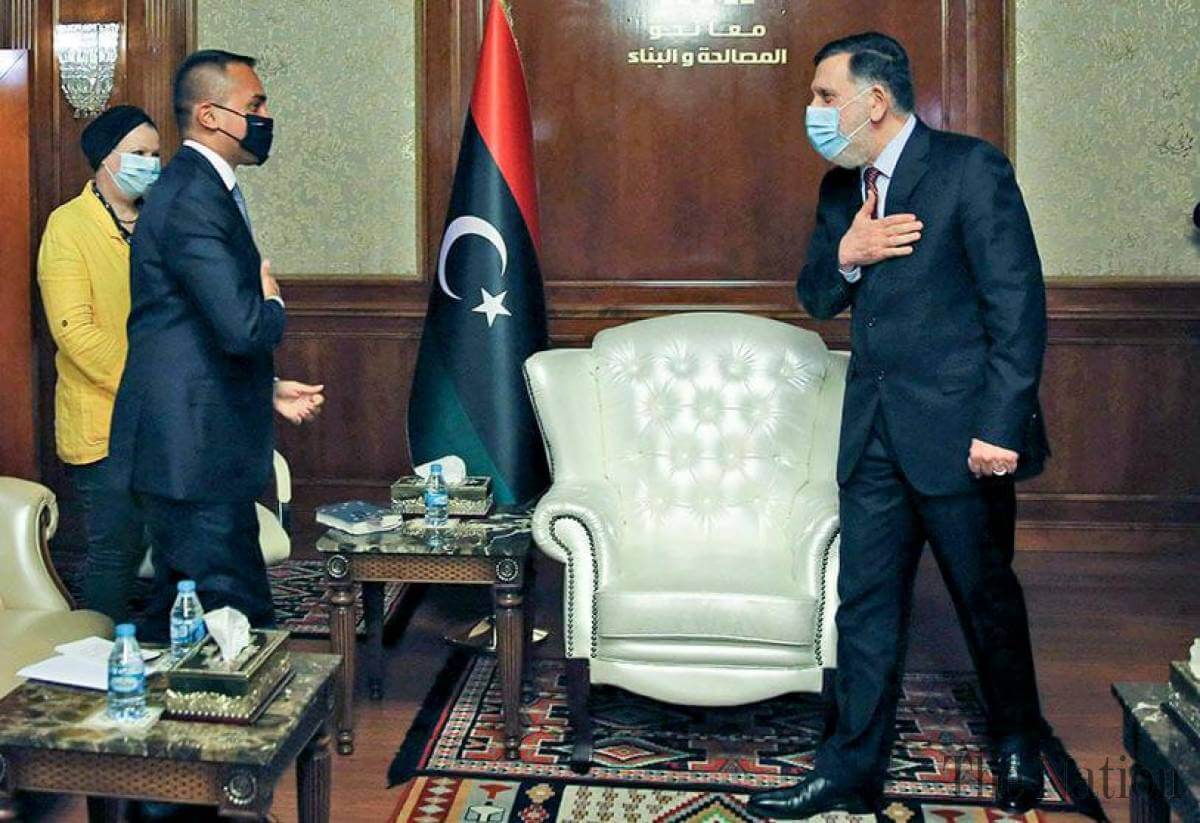On Sunday, Italian Foreign Minister Luigi Di Maio arrived in Tripoli for a short one-day visit to meet with the President of the Libyan Presidential Council, Mohamed Menfi, Prime Minister Abdul Hamid Dbeibeh, and Foreign Minister Najlaa Al-Manqoush. During his visit, he congratulated Libya for the formation of the National Unity Government and reiterated Italy’s commitment to playing a “crucial role” in the revival of the Libyan society. Further, according to the Libyan Prime Minister’s Office, the two sides discussed bilateral relations and spoke about reviving their friendship agreement.
During his visit, he applauded the efforts made by the Libyan society to bring itself out of the long-standing conflict. He said, “Only one year ago it would have been impossible to imagine a government of national unity in Libya planning investments and the relaunch of this country.” He also expressed his desire to work closely with the newly formed government. In this regard, a statement published by Di Maio’s office said that Italy intends to support Tripoli “in all fields”, specifically in “helping to unify sovereign institutions.” Consequently, he announced his decision to enhance Italian diplomatic presence in the country.
Further, he said, “Italy and Libya are united by important geostrategic interests. In addition to migratory flows, it is essential for both of our countries to work together so that economic cooperation between us can be properly relaunched.” This was a reference to a controversial agreement signed between Italy and Libya, according to which Europe-bound refugees are shifted to detention centres in Libya.
Di Maio is the first European political leader to visit Libya since the formation of the country’s national unity government on March 10. This interim government has been given the responsibility to smoothly conduct national presidential and parliamentary elections on December 24, 2021, combat corruption, and bring back public services across the war-torn country. Following the election, Di Maio had hailed the formation of the newly formed government as a “key step towards ending a decade of chaos.”
Libya has been in the throes of a violent conflict since 2011 following the ouster of former leader Muammar Gaddafi by NATO-backed forces. Conflict in Libya has two warring sides—the internationally recognised and UN-backed Government of National Accord (GNA) and Gen. Khalifa Haftar’s eastern-based Libyan National Army (LNA). However, this election aims to bring an end to the conflict by allowing the two groups to retain control of different parts of the country. The decision to conduct these elections is in pursuance of the United Nations’ peace-making efforts in the region, specifically the Berlin conference that was held last year. As a result of this dialogue, the warring parties in Libya also signed a monumental ceasefire agreement in October, which called for the departure of all foreign fighters and mercenaries from Libya by January 24, 2021
Italian FM Discusses Revival of Friendship Treaty with Libya During Tripoli Visit
During his visit to Libya, Italian Foreign Minister Luigi Di Maio expressed his intention to play a “crucial role” in revival of peace in Libya.
March 23, 2021

SOURCE: ANADOLU AGENCY
